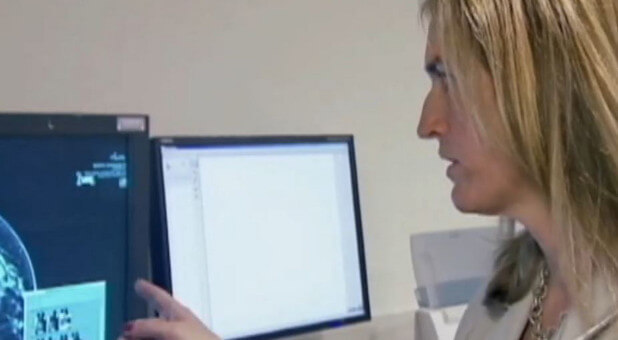A new tool used to detect breast cancer appears to be working better than the traditional mammogram. It’s called the 3-D mammogram, and many doctors say it’s a step above the traditional procedure.
Jennifer Hoeft lives life to the fullest. But the hot air balloon enthusiast and race car driver could have lost her life to breast cancer had it not been for the 3-D mammogram.
“I truly, truly believe that the 3-D mammogram is what caught my cancer early and is allowing me to pretty much live my life the way I want to,” she says.
3-D mammograms have been in use for only a few years. Compared to the traditional 2-D mammograms, the 3-D mammograms allow radiologists to get a better overall view of the breast, according to Advocate Lutheran General Hospital’s Dr. Sarah Friedewald.
Dr. Friedewald looked at two mammograms of the exact same breast, and observed that the traditional one didn’t reveal any abnormalities, but the 3-D mammogram did.
“A mass that has irregular borders in the upper part of the breast—this is very much typical of what a cancer looks like, hidden on the 2-D mammogram, but very well seen on the 3-D mammogram,” she said.
Dr. Friedewald and her associates studied nearly a half million women, and discovered the 3-D mammograms detected nearly one-third more cancers than regular mammograms. The study appears in the most recent issue of The Journal of The American Medical Association.
“We found invasive cancers, or the cancers that we worry about, the ones that potentially kill people, more frequently in women who had the 3-D mammogram versus the women who just had the 2-D mammogram,” she said.
They also discovered 3-D mammograms produced fewer false positives than traditional mammograms.
Right now 40,000 people die each year from breast cancer. But thanks to the new 3-D mammogram, that number may decline.
“Life is short,” Jennifer says, “My life’s going to be long and full and I’m going to go out and do the things I want to.”
For the original article, visit cbnnews.com.












